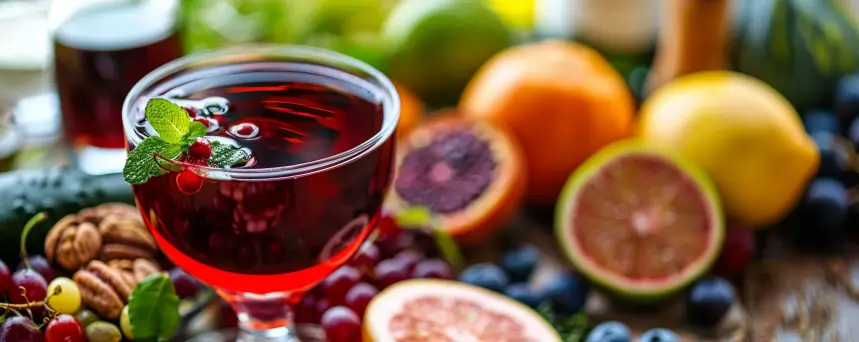
What Foods are Good For Liver Repair?
The liver is responsible for more than 500 vital tasks in the body, such as helping with digestion, creating important blood proteins, and removing toxins and waste. Thus, keeping the liver healthy is crucial. Your diet plays a significant role in safeguarding your liver and ensuring its proper function, whether it is healthy or compromised by disease. In this guide, we’ll look at the best foods for liver repair and aid in its recovery.
Here are the top nutrient dense foods for liver repair:
Multiple vegetables such as Spinach, kale, Collard greens, Cabbage, and Watercress are mainly rich in antioxidants, vitamins, and minerals, which are utilized to support and continue liver function and protect against oxidative stress.
Including blueberries, strawberries, and raspberries in your diet is beneficial because they are high in fiber. These berries also contain various antioxidants, such as anthocyanins. Research on animals and in test tubes has shown that the potent antioxidants in berries can reduce liver damage and may even slow the growth of liver cancer cells. However, more human based studies are needed to verify these effects.
If you enjoy broccoli, you’re in for a treat. This cruciferous vegetable, along with cauliflower, Brussels sprouts, and mustard greens, benefits your liver. They are rich in fiber, which promotes liver health, and contain antioxidants and phytochemicals which may help in preventing liver cancer.
Similar to berries, grapes are rich in fiber and antioxidants. A particular antioxidant that exists in grapes is resveratrol, that may be helpful in preventing liver damage in people with non-alcoholic fatty liver disease (NAFLD), a prevalent condition in the U.S.. Oxidative stress can aggravate NAFLD, but antioxidants like resveratrol can assist in counteracting this process.
Nuts contain important unsaturated fats, making them a valuable addition to your diet for different reasons. One study discovered that consuming 28 grams of walnuts daily (about a small handful) as part of a Mediterranean diet might lower the risk of developing non-alcoholic fatty liver disease (NAFLD). Another study revealed that diets with higher nut consumption are linked to a reduced risk of NAFLD, especially in men.
The American Liver Foundation warns about the need to decrease saturated fat and red meat in a person’s diet. A perfect way to achieve this is by sometimes substituting red meat with beans, lentils, and chickpeas. Legumes are generally known for their low saturated fat content and high in fiber, because of which it is known as one of the best foods for liver health.
Oily fish like salmon, tuna and sardines are rich in omega-3 fats. Diets high in omega-6 fats (often from vegetable and seed oils) and low in omega-3 fats are linked to non-alcoholic fatty liver disease (NAFLD). Including more oily fish in your diet can help correct this imbalance, potentially slowing the progression of NAFLD.
Coffee is famously known as beneficial for liver health, but it should be avoided with excessive sugar, as sugar is the culprit that harms the liver. Coffee has anti-inflammatory and antioxidant properties, and all the regular varieties including decaf are beneficial. Multiple research shows that diterpenes, a compound that exists in coffee, can help in detoxification, which can be supportive for people suffering with liver fibrosis and cirrhosis.
Tea, mainly green tea, has tons of compounds known as catechins, which consist of both antioxidant and anti-inflammatory properties. There are many studies that confirm that these compounds can decrease the risk of non-alcoholic fatty liver disease (NAFLD) and can also help in preventing liver cancer. Still, it is recommended to consume green tea and avoid green tea-based supplements, because excessive consumption of green tea can cause liver damage.
Olive oil is rich in phenols and monounsaturated fatty acids (MUFAs), which are beneficial for heart health. Researchers discovered that a Mediterranean diet supplemented with olive oil reduced the risk of developing non-alcoholic fatty liver disease (NAFLD) in 100 individuals at high risk of heart disease.
Several studies have investigated the impact of olive oil on individuals with NAFLD, finding that incorporating 2 tablespoons of olive oil into their diet improved liver health.
Beetroot juice consists of nitrates and antioxidants known as betalains.
Research findings show that beetroot juice can be a great treatment for non-alcoholic fatty liver disease (NAFLD) in adults. Also, when combined with the well-known Mediterranean diet, beetroot juice provides improved effectiveness in managing NAFLD.
How do you make the food you eat good for your liver?
Consuming nutrient-rich foods is a straightforward yet productive way to strengthen liver health. Many foods contain compounds such as antioxidants that can aid liver health by reducing inflammation, alleviating oxidative stress, and shielding cells from damage. Some foods are also rich in fiber, which supports weight management and ensures proper liver function. Furthermore, certain foods provide essential nutrients like protein or healthy fats, which may be advantageous in managing or preventing conditions linked to liver disease, such as diabetes.
If you are suffering from any type of Liver-related ailments, please contact with a Hepatologist as Liver health is crucial and should not be ignored.

Leave a Reply